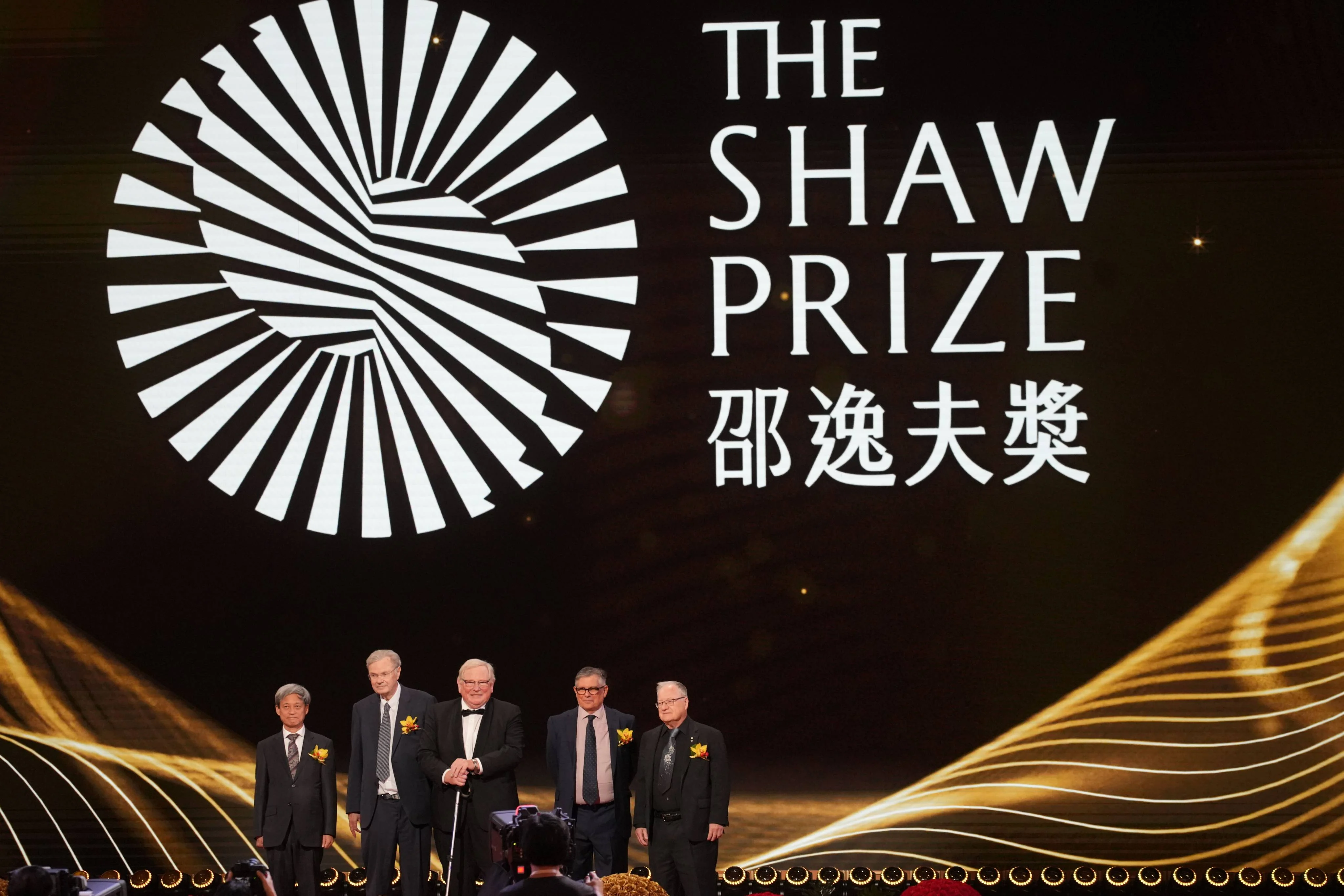Copyright scmp

Hong Kong’s leader has said late entertainment mogul Run Run Shaw’s vision of celebrating education and the pursuit of knowledge with his prestigious science prize is central to the city government’s own aspirations. Speaking at the award ceremony for the prestigious Shaw Prize on Tuesday, Chief Executive John Lee Ka-chiu also paid his respects to late Nobel Prize-winning theoretical physicist Chen-ning Yang, who was one of the local award’s founding council members. The award, dubbed the “Nobel Prize of the East”, was established by the late Shaw and has been given out annually to academics since 2004 for their outstanding contributions in three categories: astronomy, life science and medicine, and the mathematical sciences. Each prize consists of a medal, a certificate and a cash award of US$1.2 million. “My congratulations to each of you for your outstanding and continuing contributions to science and to civilisation – to a future bright with cooperation, progress and purpose,” Lee said. “That, of course, speaks of the vision Sir Run Run Shaw brought to compelling life – with the help of Professor Yang and other founding members – one that celebrates education and the pursuit of knowledge through science and research.” Yang died at the age of 103 in Beijing on Saturday. “That vision is central to the priorities and policies of the [Hong Kong] government. We dedicate significant investments to innovation and technology, and the research and development that drives it,” Lee said. Lee noted that the same commitment had also shaped the city’s post-secondary education system, noting that Hong Kong was home to five of the world’s top 100 universities. The Hong Kong leader added that the city had ranked fourth in this year’s World Talent Ranking, while managing to be the world leader in the category of “graduates in sciences”. “Hong Kong’s outstanding institutions nurture our talented and hard-working young generation. They also help to attract some of the world’s best academics and professionals to our city,” he said. “Just this month, we welcomed a Nobel laureate in physics to one of our universities. We are thankful to many science laureates, as well as world-class academics and researchers in our city, and I’m confident that they will continue to propel Hong Kong’s rise as an international education and I&T hub.” Lee was referring to Nobel laureate Professor Ferenc Krausz, who will be joining the University of Hong Kong as chair professor of its physics department in November. Professor Wolfgang Baumeister, director emeritus and scientific member of the Max Planck Institute of Biochemistry in Germany, was awarded the 2025 Shaw Prize in life science and medicine for his pioneering development and use of cryogenic electron tomography, or cryo-ET, an imaging technique that enables 3D visualisation of biological samples such as proteins. The technology helps scientists understand how viruses attack the human body and develop new treatments, such as vaccines. This year’s prize in astronomy was awarded to Professor John Richard Bond of the Canadian Institute for Theoretical Astrophysics and the University of Toronto, and Professor George Efstathiou of the University of Cambridge in the United Kingdom. Their research in cosmology, particularly their predictions of the fluctuations of the cosmic microwave background, has contributed to the precise determination of the age, geometry and mass-energy content of the universe. The winner of the mathematical sciences prize was Professor Kenji Fukaya of the Beijing Institute of Mathematical Sciences and Applications and Tsinghua University’s Yau Mathematical Sciences Centre. He was recognised for his work on symplectic geometry, which is needed for studies in fields such as quantum mechanics. Lee and event attendees paid their respects to Nobel Prize-winning theoretical physicist Yang, who died weeks after marking his 103rd birthday. In addition to being one of the prize’s founding council members, Yang also chaired its board of adjudicators for more than a decade. “Professor Yang was instrumental in establishing the very standards of excellence we recognise today. As one of the first Chinese scientists to receive a Nobel Prize in physics, he reshaped modern physics and remained devoted to the scientific and educational developments of China, our country,” Lee said. “Professor Yang’s spirit of intellectual pursuit and his unwavering dedication to advancing knowledge for humanity continue to live on today.” Professor Kenneth Young, chairman of the Shaw Prize Council, joined Lee in paying tribute to Yang, saying the academic was a “towering figure in science”. “Professor Yang was pivotal in shaping the prize from its inception, providing visionary guidance that defined its mission and purpose,” he said. “The Shaw Prize owes its success to key decisions shaped by Professor Yang’s insights.”



